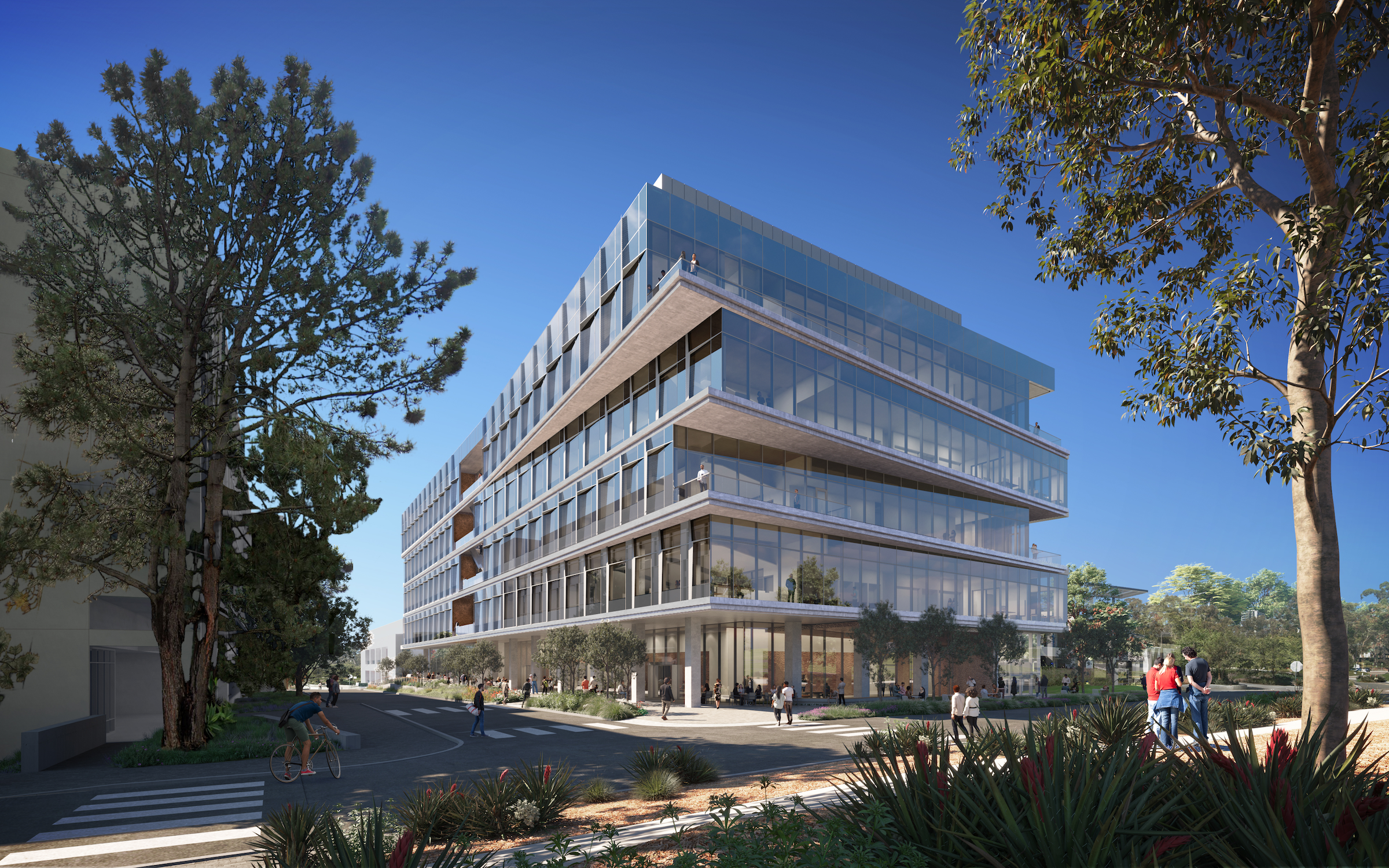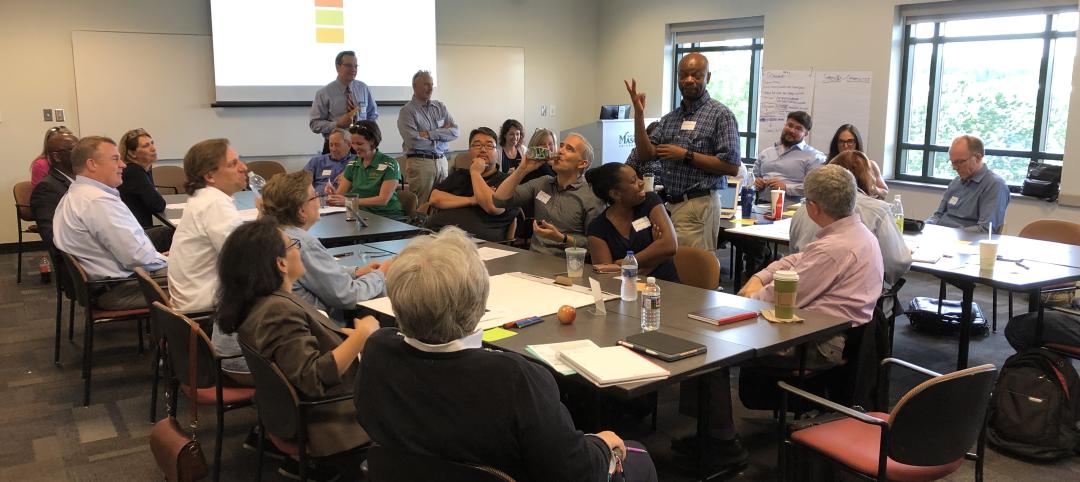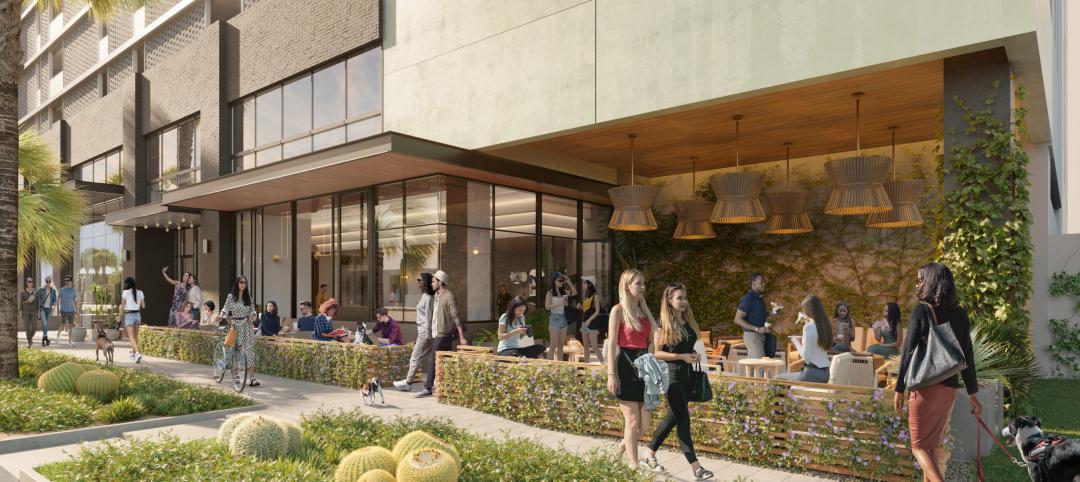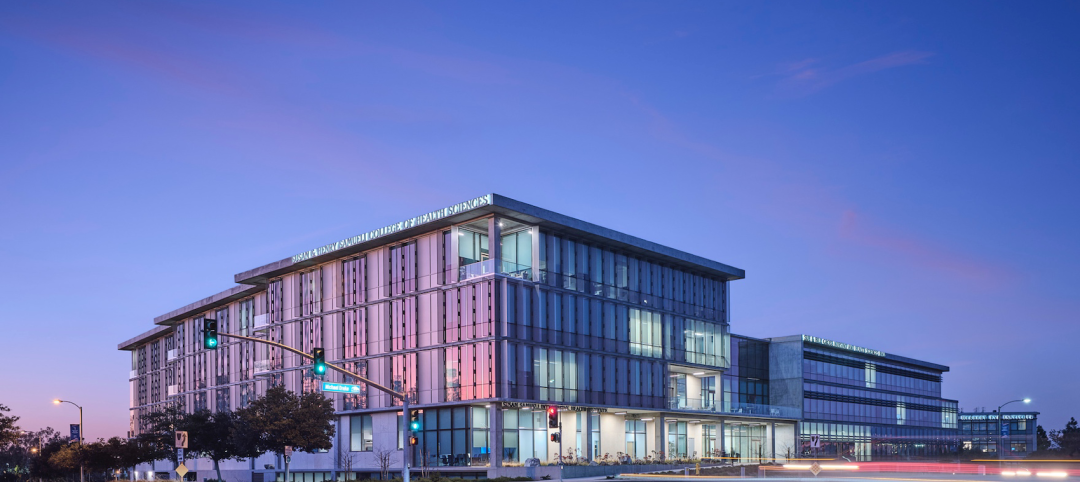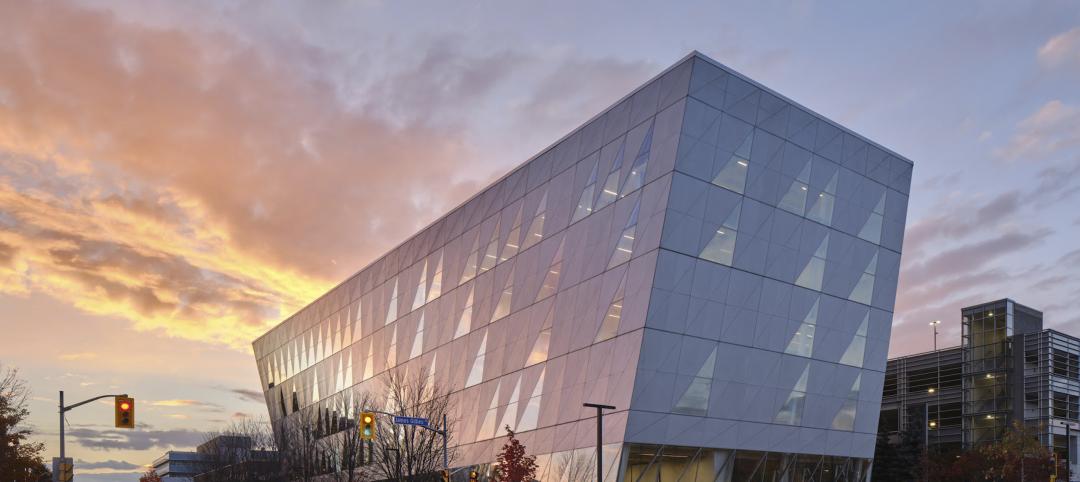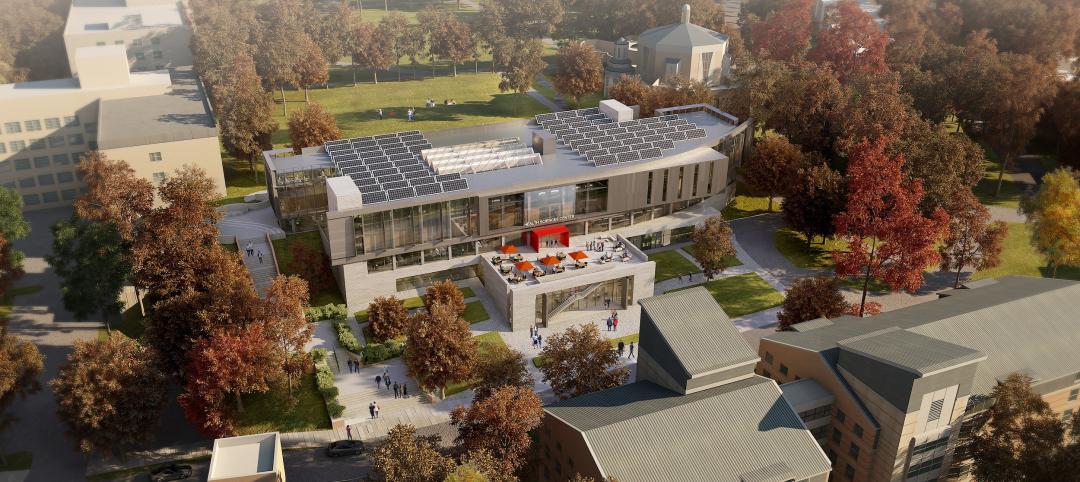The University of California San Diego has approved plans for a new Multidisciplinary Life Sciences Building, with construction starting this fall. The 200,000-sf, six-level facility will be the first building on the UC San Diego campus to bridge health science research with biological science research and teaching.
The facility aims to help meet a growing demand for modern teaching and research space across disciplines at UC San Diego Health Sciences and the School of Biological Sciences. Research and teaching will focus on the intersection of neurodegenerative disease, inflammation, immunology, and infectious disease—using advanced technologies to drive discovery in academia and industry.
The design by Flad Architects creates scientific neighborhoods that support interdisciplinary collaboration and education at the interface of biology, machine learning, and advanced instrumentation. The research laboratories enable flexibility in response to changing programs and research, while the teaching laboratories integrate experimentation, instrumentation, and computational analysis.
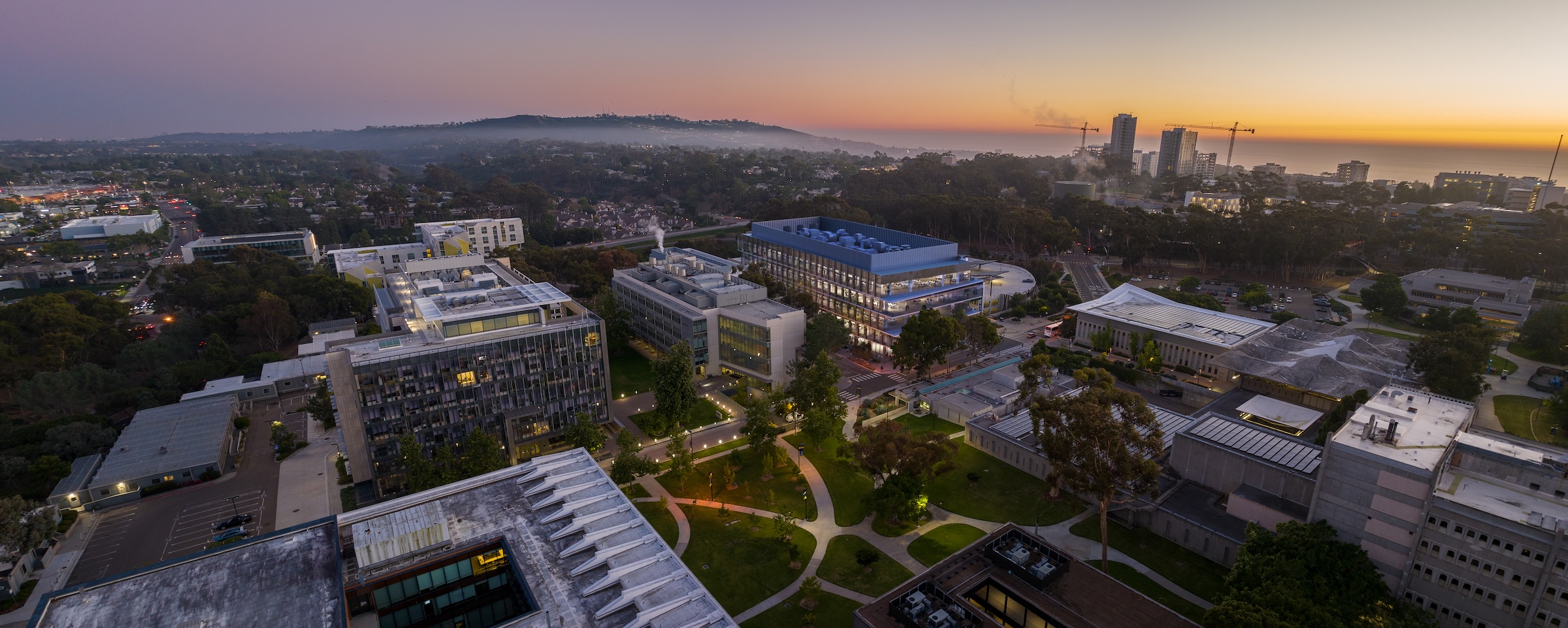
The building program also includes shared research facilities, collaborative meeting areas, conference rooms, offices, and public spaces.
In the glass façade, perforated concrete fins serve both as a shading device and as a light shelf reflecting natural light into the building. The massing also creates outdoor terraces on each floor. The building’s upper floors are offset, creating the appearance of rotated stacks. The street level, with biological science classrooms and shared meeting rooms, will put science on display.
“The Multidisciplinary Life Sciences Building will help solidify UC San Diego’s standing as a premier research institution in the field of neurobiology,” John M. Carethers, MD, vice chancellor for health sciences at UC San Diego, said in a press statement.
The project is designed to meet LEED Gold certification at a minimum. Construction on the site, currently a parking lot and service road, is expected to start in fall 2024 and conclude in 2027.
On the Building Team:
Design architect and architect of record: Flad Architects
MEP engineer: Salas O’Brien
Structural engineer: KPFF Consulting Engineers
Construction manager: McCarthy
Related Stories
Higher Education | Jun 14, 2023
Designing higher education facilities without knowing the end users
A team of architects with Page offers five important factors to consider when designing spaces for multiple—and potentially changing—stakeholders.
University Buildings | Jun 9, 2023
Cornell’s new information science building will foster dynamic exchange of ideas and quiet, focused research
Construction recently began on Cornell University’s new 135,000-sf building for the Cornell Ann S. Bowers College of Computing and Information Science (Cornell Bowers CIS). The structure will bring together the departments of Computer Science, Information Science, and Statistics and Data Science for the first time in one complex.
Student Housing | Jun 5, 2023
The power of student engagement: How on-campus student housing can increase enrollment
Studies have confirmed that students are more likely to graduate when they live on campus, particularly when the on-campus experience encourages student learning and engagement, writes Design Collaborative's Nathan Woods, AIA.
Urban Planning | Jun 2, 2023
Designing a pedestrian-focused city in downtown Phoenix
What makes a city walkable? Shepley Bulfinch's Omar Bailey, AIA, LEED AP, NOMA, believes pedestrian focused cities benefit most when they're not only easy to navigate, but also create spaces where people can live, work, and play.
Higher Education | May 24, 2023
Designing spaces that promote enrollment
Alyson Mandeville, Higher Education Practice Leader, argues that colleges and universities need to shift their business model—with the help of designers.
University Buildings | May 17, 2023
New UC Irvine health sciences building supports aim to become national model for integrative health
The new College of Health Sciences Building and Nursing & Health Sciences Hall at the University of California Irvine supports the institution’s goal of becoming a national model for integrative health. The new 211,660-sf facility houses nursing, medical doctorate, pharmacy, philosophy, and public health programs in a single building.
University Buildings | May 11, 2023
New ‘bold and twisting’ building consolidates School of Continuing Studies at York University
The design of a new building that consolidates York University’s School of Continuing Studies into one location is a new architectural landmark at the Toronto school’s Keele Campus. “The design is emblematic of the school’s identity and culture, which is centered around accelerated professional growth in the face of a continuously evolving labor market,” according to a news release from Perkins&Will.
Sustainability | May 11, 2023
Let's build toward a circular economy
Eric Corey Freed, Director of Sustainability, CannonDesign, discusses the values of well-designed, regenerative buildings.
Digital Twin | May 8, 2023
What AEC professionals should know about digital twins
A growing number of AEC firms and building owners are finding value in implementing digital twins to unify design, construction, and operational data.
University Buildings | May 5, 2023
New health sciences center at St. John’s University will feature geothermal heating, cooling
The recently topped off St. Vincent Health Sciences Center at St. John’s University in New York City will feature impressive green features including geothermal heating and cooling along with an array of rooftop solar panels. The geothermal field consists of 66 wells drilled 499 feet below ground which will help to heat and cool the 70,000 sf structure.


